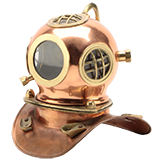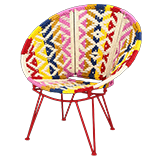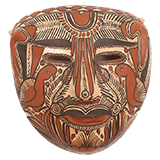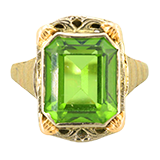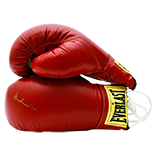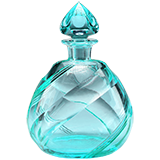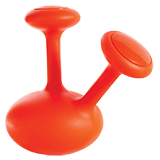Seller Story: John Tuska–Lexington, KY
“My father, the American Artist Tuska, asked that his life be shared as an educator: One who never stopped teaching himself, a master of his crafts, who shared his process and technique and inspired his students to be themselves.
He grew up in Brooklyn, where he often skipped school to further his curiosity by roaming the library shelves and studying museum collections. Tuska wanted to get as far as he could from his family of eight sisters and a father who did not understand his only son, and after discovering clay at LaGuardia High School of Music and Art began to appreciate the value of conventional education. Those passions led him to the New York State College of Ceramics at Alfred University.
After a year at Alfred, he joined the Navy to serve his mandatory military time. His four years in there afforded him the inspiration and influence he would have never had access to otherwise. Tuska ravaged the cultural offerings at every port of call. He finished his service in Tokyo, where he found the work of the great Japanese potters – Rosanjin, Kawai, Hamada and others. In 1969, Tuska moved to Rome for the year. Surrounded by Italy’s masters of sculpture of the human form, Tuska found in the human figure, and in the medium of bronze, the inspiration and direction for the rest of his life.
He moved his family to Kentucky where he taught at the University of Kentucky in Lexington. As the regional authority on the art of clay and ceramics, he inspired a new generation of artists and teachers. The human form fascinated him and would become the theme of his career in many media. With an undeniable passion for the human body, mind, and spirit, Tuska’s legacy lives on through Tuska Studio, where our mission is to foster humanity through education and healing.” -Seth Tuska, son.
.jpg?ixlib=rb-3.1.0&w=766&h=&fit=max&crop=&auto=format)

Tuska Original Abstract Pastel

Original Tuska Cast Paper Bas-Relief Sculpture "Elliot"

Original Tuska Acrylic Painting

Original Tuska Mixed Media Sculpture "Conversation"

Original Tuska Fiberglass Bas-Relief Sculpture

Tuska Original Cut Paper Art "Quilt Study Number 7"

Original Tuska Mixed Media Painting

Tuska Original Sculpture
.jpg?ixlib=rb-3.1.0&w=1247&h=&fit=max&crop=&auto=format)

Tuska Cast Paper Bas-Relief Sculpture "Backs II"

Original Tuska Bronze Nude Sculpture

Tuska Illumine Study Bronze Relief Maquette

Original Tuska Multimedia Sculpture

Original Tuska Ceramic Bowl

Bronze Bas-Relief Sculpture

Tuska Wood Cut Print

Original Tuska Cast Paper Bas-Relief Sculpture "Torso"

Original Tuska Art Pottery Bowls

Tuska Mixed Media Artwork Circa 1966

Original Tuska Pastel Drawing

Original Tuska Clay Sculpture "John Sherman Cooper Variation I" Circa 1985

Original Tuska Acrylic Painting

Original Tuska Art Pottery

Original Tuska Female Watercolor Painting

Original Tuska Multimedia "Silhouette III" Framed Art

Original Tuska Female Nude Multimedia Painting

Original Tuska Mixed Media Bas-Relief Sculpture "Energy Source"

Original Tuska Caricature Drawing

Original Tuska Cast Paper Bas-Relief Sculpture "Four Square"

Original Tuska Ceramic Bas-Relief Sculpture

Original Tuska Monotype Print

Original Tuska Fiberglass Bas-Relief Sculpture

Original Tuska Ink Wash

Original Tuska Abstract Clay Sculpture

Original Tuska Watercolor Painting

Original Tuska Clay Bust Sculpture

Original Tuska Cast Paper Relief Sculpture "Female Backside"`

Original Tuska Cut Paper and Watercolor Framed Art "Tattoo" Number 1

Original Tuska Ceramic Female Sculpture

Tuska Original Cut Paper Art "Quilt Study Number 2"

Tuska Serigraph Print "Summertime"

Original Tuska Cut Paper and Watercolor Framed Art "Buds" Number 17

Original Tuska Cast Paper Bas-Relief Sculpture "Bubble"

Tuska Original Abstract Pastel

Tuska Mixed Media Drawing Circa 1968

Tuska Original Abstract Sculpture

Original Tuska Cast Paper Bas-Relief Sculpture

Original Tuska Paper Mâché Relief Sculpture "Study For Illumine"

Tuska Drypoint Etching
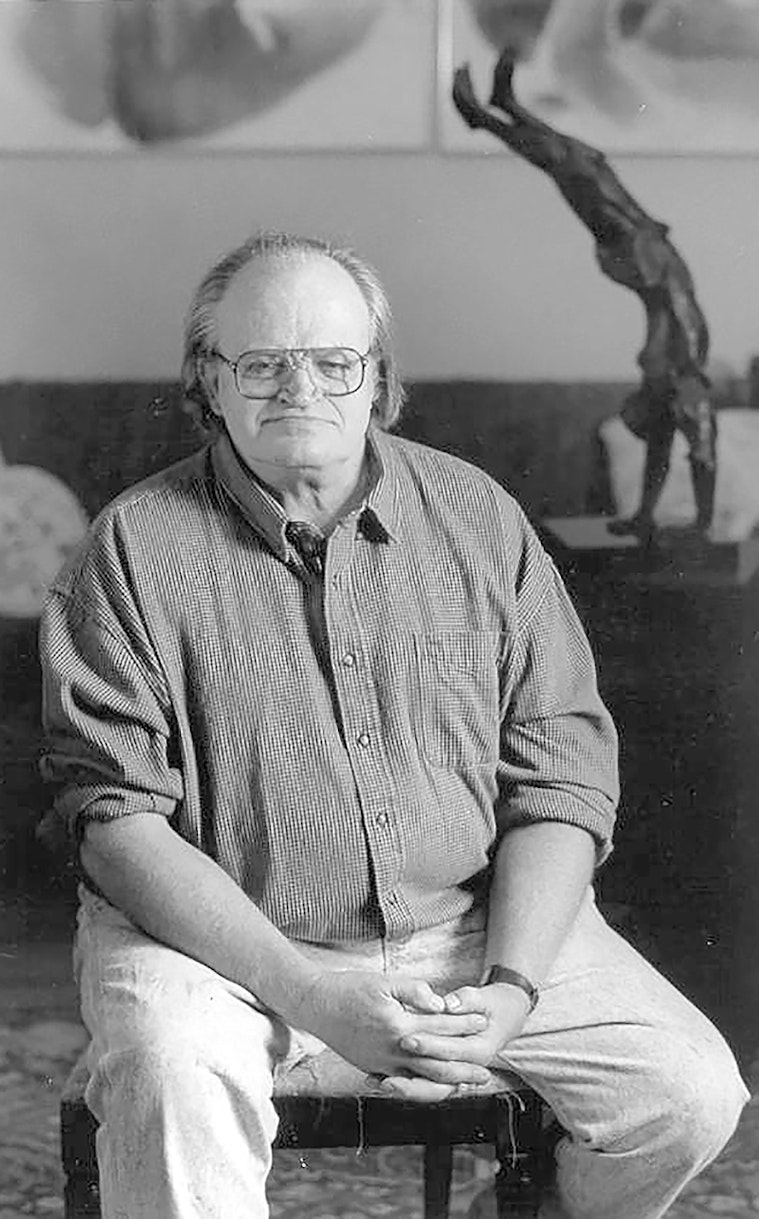
Why do you suspect he wished for his legacy to be as educator primarily, versus an artist?
He absolutely would say, “There is nobody that can tell you what defines great art. That is up to you. It’s how it makes you feel.” I had a conversation with him just before he died, both of us knowing I would inevitably have to go through his life’s work and the massive undertaking that would be. He basically said, “If you want, just destroy it all.” He didn’t care, he resisted the mainstream and didn’t want his work to be defined. So many of his students did not go on to be on artists, but all of them have been inspired and pushed towards their potential by his teaching. Education was the most important thing to him.
The scope of work in this collection ranges media from ceramic, to pastel, to bronze, to cut paper and more. How does this spectrum speak to his body of work as a whole?
He used to say he got ideas just from walking to school and seeing cracks in the sidewalk. He never stopped thinking, never stopped asking questions, never stopped being curious. He didn’t feel one media could answer all of the visual questions that concerned him. He always generated the premise, “What if?” There are always questions, and the possible answers are what he produced. No single media satisfied the diversity of his thinking.
How do you see Tuska’s art continuing to fulfill his wishes to be remembered as an educator?
I’m embarking on a project called Mythos: Tuska’s Art of Self Reflection. It’s an interactive self-guided exhibit experience conceived to provide individuals a moment to reflect and inspire you to be you. I’ve been working on this program for two years and launched it last Fall in Brooklyn’s Borough Hall. Visitors will be given a sketchbook and a pencil, and can write or draw their own reactions, thoughts and feelings, about the art and their own lives, as they sit in Tuska’s “studio” and engage with the different works. I’m hoping to take it more places so my father can continue to reach more individuals through his art, as he did during his lifetime as an educator.
